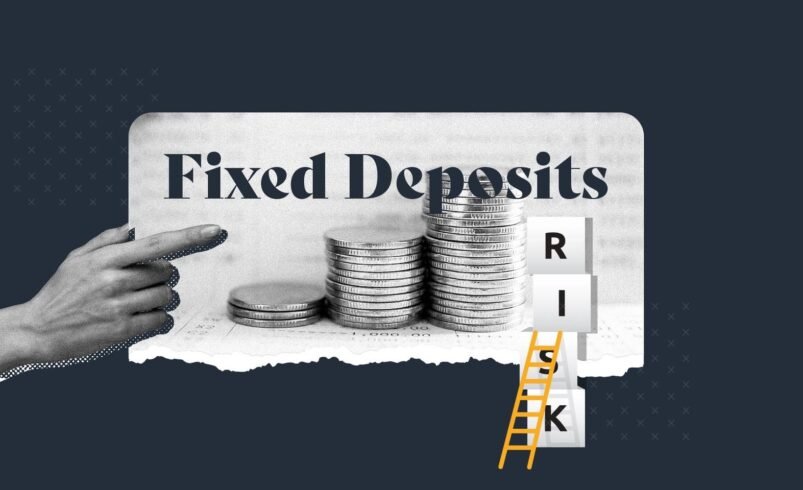Tailoring to Your Needs: Understanding Fixed Deposit Schemes

Fixed Deposit (FD) schemesare a popular investment option for those who want to earn a fixed rate of interest on their savings. In an FD scheme, the investor deposits a certain amount of money for a fixed period, which can range from a few months to several years. The interest rate on the deposit is fixed at the time of investment and remains the same throughout the tenure. There are different types of FD schemes available, such as regular, tax-saving, senior citizen, and others.
The key features of FD schemes include tenure, fixed deposit interests, and payout options. Those who want to earn a fixed rate of return on their savings should read this and know which FD is better suited for them.
Choose the right FD scheme based on your financial goals and risk tolerance
Choosing the right FD scheme is important to meet your financial goals and risk tolerance. Before investing, it is important to assess your financial needs, such as short-term vs. long-term goals, the amount of investment, and expected returns. There are different types of FD schemes available, such as regular, tax-saving, senior citizen, and others, tailored to meet your specific needs.
For example, senior citizen FD schemes offer higher interest rates to individuals above a certain age. Similarly, tax-saving FD schemes offer tax benefits under Section 80C of the Income Tax Act. Moreover, to maximise returns on your FD investment, compare interest rates offered by different banks and choose the one that provides the best rate.
Evaluate your needs, compare interest rates, and choose the one best aligns with your financial goals.
What to know before investing in FD?
Whilefixed deposit schemes offer a fixed rate of return and are considered a safe investment option, there are certain risks and drawbacks to be aware of. One of the main disadvantages of FDs is that the returns are fixed and do not take into account inflation, which can erode the value of your investment over time. Additionally, if you withdraw your investment before the maturity period, you may have to pay a penalty fee, reducing your returns.
Regarding tax implications, the interest earned on FDs is taxable as per the investor’s income tax slab. This means that if your total income, along with the interest earned on FDs, exceeds the basic exemption limit, you will have to pay tax on the interest earned. However, tax-saving FDs can offer tax benefits under Section 80C of the Income Tax Act, which can help you save on taxes.
Therefore, it is important to evaluate the potential risks and drawbacks of investing in FDs and consider the tax implications before investing. It is advisable to consult a financial advisor to understand the tax implications and choose the right FD scheme that aligns with your financial goals and risk tolerance.
How do I open an FD account? What documentation is required?
To open a FD account offline, you can follow the below steps:
- Choose a bank: First, decide which bank you want to open an FD account with. Compare the interest rates and other terms and conditions of different banks before deciding.
- Visit the Bank Branch: Once you have selected the bank, visit the nearest branch with all the necessary documents.
- Fill in the Application Form: Get the FD application form from the bank and fill it out with all the required details like name, address, contact number, deposit amount, tenure, etc.
- Submit the Required Documents: Along with the application form, you will need to submit some documents like identity proof, address proof, and passport-size photographs. The documents required may vary from bank to bank.
- Deposit the Amount: After applying the required documents, deposit the amount you want to invest in the FD account.
- Wait for Confirmation: The bank will verify your documents and application form. Once everything is verified, the bank will confirm your FD account.
You can also open an account online by downloading the app of a the bank where you want to open your deposit account or by visiting the website.
Documentation required to open an FD account may include
- Identity proof like Aadhaar card, PAN card, Voter ID card, Passport, etc.
- Address proof like an Aadhaar card, Passport, Driving License, Utility bills, etc.
- Passport size photographs
It is recommended to check with the bank for the complete list of documents required before visiting a bank branch.
Expert advice or insights on FD investment strategies
When it comes to investing in Fixed Deposits (FDs), there are a few key points to keep in mind:
- Interest rates: Look for banks that offer competitive interest rates, as this will ensure that your money grows steadily.
- Tenure: Consider the tenure of the FD. Longer tenure FDs usually offer higher interest rates, but you may not want to lock your money away for too long.
- Diversification: Don’t put all your money into one FD. Instead, consider investing in multiple FDs with varying tenures and interest rates. This will help you minimise your risk and maximise returns.
Remember to consult with a financial advisor before making any investment decisions. They can offer expert advice and insights into FD investment strategies tailored to your financial goals and risk tolerance.
Conclusion
Fixed deposit schemes can be a wise investment choice for those who want to earn a fixed rate of return on their savings. However, it is important to choose the right FD scheme based on your financial goals and risk tolerance, evaluate the potential risks and drawbacks, and consider the tax implications before investing. By following the steps outlined above and seeking expert advice, you can make informed decisions and maximise investment returns.



